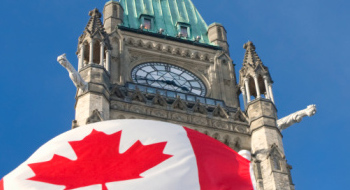

Financial industry groups may not have a chance to speak before Parliament on spending and securities issues before the federal budget is released.
The new government is considering skipping the traditional Parliamentary consultations held in the run-up to the budget, reports The Globe and Mail. The Globe cites an anonymous Liberal source who says the economic need to deploy a stimulus package is too urgent to go through the usual consultation process.
Read: Morneau wants your pre-budget input
There’s also little time between the return of Parliament on January 25 and the release of the budget, which is typically done in February or March. The government has yet to announce when it will present the budget, but a Globe source and other government watchers currently expect it in the third week of March. The government’s fiscal year starts April 1.
The House of Commons’ Finance Committee traditionally holds budget consultations through the fall and winter. It’s the main opportunity industry groups such as the IIAC, CALU and PMAC have to make their cases before Parliament when it comes to proposed changes to taxes, benefits, securities laws and other government policies.
A procedural dispute between the Bloc Québécois and the other federal parties is delaying Parliament’s appointment of Members of Parliament to sit on the committee. Committee clerks can’t ask witnesses to appear or develop an agenda without the direction of members.
Read: Despite poor growth, Liberals to push ahead with tax breaks
This week, Finance Minister Bill Morneau has been travelling the country meeting with business leaders, local politicians and everyday Canadians to hear about what they’d like to see in the next budget. You can also make your opinion known through the Government of Canada’s budget website.
It’s been a tough week on the economy, and on government finances, as the value of the loonie hit record lows compared to the U.S. dollar, stock markets tumbled on nervousness about China’s economy, and analysts began predicting the price of a barrel of oil could fall to as low as US$20. All this will affect the government’s coffers at budget time, and its projections for future surpluses and deficits.
Morneau has not said whether the government will stick the Liberal’s election pledge to incur no more than a $10 billion annual deficit, but he’ll have to weigh that promise against his government’s spending commitments. The government has promised to boost social infrastructure spending. It has already lowered the tax rate for income between $45,282 and $90,563 from 22% to 20.5%, while increasing it on those who make more than $200,000.
This article was originally published on Benefits Canada‘s companion site, Advisor.ca
